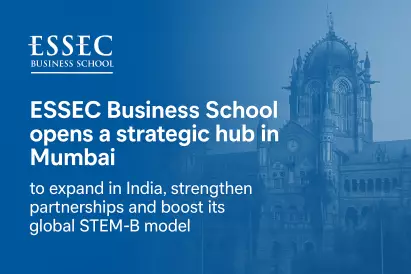Summary: Explore the evolving Master's education landscape for "Launching Awards" in Far East Asia in 2025. This article delves into market size, academic trends, skills demand, policy landscapes, and challenges. Discover how digital transformation, labor market alignment, and international dynamics are shaping the future of graduate education.
Context and Market Overview in Far East Asia
The 2025 Master's degree environment in Far East Asia—especially within the Launching Awards specialization—reflects rapid changes driven by technological progress, demographic shifts, and strong economic growth.
Major economies like China, Japan, South Korea, Singapore, and Hong Kong anchor this expansion, offering a wide array of graduate programs.
Domestic graduate enrollments continue to surge, while regional mobility remains high due to robust government-funded scholarships.
However, international inflows have softened due to geopolitical and immigration-related tensions. Intra-Asia study trends gain strength, supported by scholarships like Japan’s JISPA and other public initiatives.
Fields like Entrepreneurship and Innovation and Project Management are aligned with the Launching Awards theme, demonstrating synergy across disciplines for students targeting Asian hubs.
Emerging Curriculum and Delivery Trends
Graduate programs are increasingly interdisciplinary, weaving together capstones, internships, and micro-credentials.
The teaching model has shifted toward adaptive modular learning, allowing flexible pathways tailored to working professionals.
Digital and AI fluency underpin many of these programs, essential for innovation-driven curricula like Launching Awards.
The widespread adoption of online and hybrid formats helps mitigate concerns around international mobility, widening access for diverse student demographics.
Programs in E-Business and Digital Marketing and Data Analytics exemplify this trend by integrating stackable learning and tech literacy components.
In-Demand Skills and Employment Outcomes
Employability in Far East Asian Master's sectors is shaped by strong demands for both technical and soft skills.
Students in Launching Awards programs benefit from mastering digital tools for project management, marketing automation, data evaluation, and AI-enabled product launches.
Industries hiring these graduates include consulting, government policy, tech, and communications.
Many employers also focus on cross-cultural communication and global teamwork, mirroring the skills developed in programs like International Management or Corporate Communication.
Urban economic hubs—especially Tokyo and Singapore—continue to offer strong placement rates and higher salary bands for graduates with innovation-centric competencies.
Regulation, Accreditation and International Recognition
National agencies actively enforce quality assurance across fast-growing graduate landscape.
Japan, for example, includes tailored accreditations for its scholarship-supported JISPA offerings.
As regional cooperation intensifies, mutual credit recognition and dual-degree options emerge to serve students better.
This aligns with efforts seen in fields such as Sustainable Development and Public Administration, supporting regional alignment and global standards.
Nonetheless, restrictive visa and employment laws—particularly in Western countries—affect both outbound and returnee students, potentially impacting Asian institutions' attractiveness in a global context.
Affordability, Scholarships, and Access
Graduate education costs vary widely across countries and institutional tiers. Government and employer-sponsored scholarships, along with international awards like Fulbright and Malaysia International Scholarships, mitigate financial burdens for select students.
Despite this, affordability remains an obstacle for many.
Programs offering practical ROI, particularly in tech-infused or policy-centric fields like Energy and Natural Resources or Launching Awards, help students and institutions demonstrate tangible value.
Strategies implemented in areas like MBA full-time programs show how targeted support and flexible tuition solutions foster inclusivity and competitiveness.
Regional Competition and Technological Innovation
Competitive pressures among Asian institutions continue to rise, heightened by expanding EdTech solutions and hybrid platforms. Digital innovation enhances access for remote learners and enables institutions to scale cross-border reach while preserving quality.
Institutions also form strategic partnerships for shared delivery—particularly important in programs like Business Intelligence and tech-synergized Launching Awards. These alliances help counter declining outbound mobility trends while leveraging intra-Asia collaboration opportunities.
Emerging cross-sector programs also align with evolving industry expectations, as seen in Innovation Awards in Far East Asia, providing a blueprint for scalable growth and flexibility.
Key Challenges and Strategic Imperatives
Despite clear growth paths, several challenges remain.
Rising tuition costs, technology integration gaps, and faculty shortages limit progress. Demographic shifts raise concerns about long-term talent retention and institutional sustainability.
Differentiated branding, focused investment in tech infrastructure, and agile academic-industry linkages are essential. Programs in Leadership and General Management already reflect such strategies by promoting talent development and dynamic delivery models.
Moreover, curriculum reform and QA frameworks must evolve rapidly to match workplace expectations and technological disruption pace, especially in fast-moving educational fields like Launching Awards.
Looking Ahead: Projections Through 2028
The Master's education sector in Far East Asia is poised for further expansion, particularly in digital innovation, strategic policy disciplines, and entrepreneurship-focused fields like Launching Awards.
Proactive higher ed policies, regional diplomacy, and scalable EdTech will drive upside growth scenarios.
Government reforms easing visa or work constraints, increased scholarship funding, and industry-aligned program models will define program success.
International exposure through exchange partnerships and online modules will also shape the regional appeal of Far East Asia's graduate offerings.
This trajectory is consistent with broader graduate education excellence globally, demonstrating potential parity with leading programs in Marketing in Far East Asia and similar innovation-aligned paths.
In conclusion, the evolving education ecosystem surrounding Launching Awards Master's degrees in Far East Asia embraces both opportunity and responsibility.
Stakeholders must align resources, policies, and curricula to ensure high-quality, inclusive, and globally competitive education for the next wave of graduate leaders in innovation.



